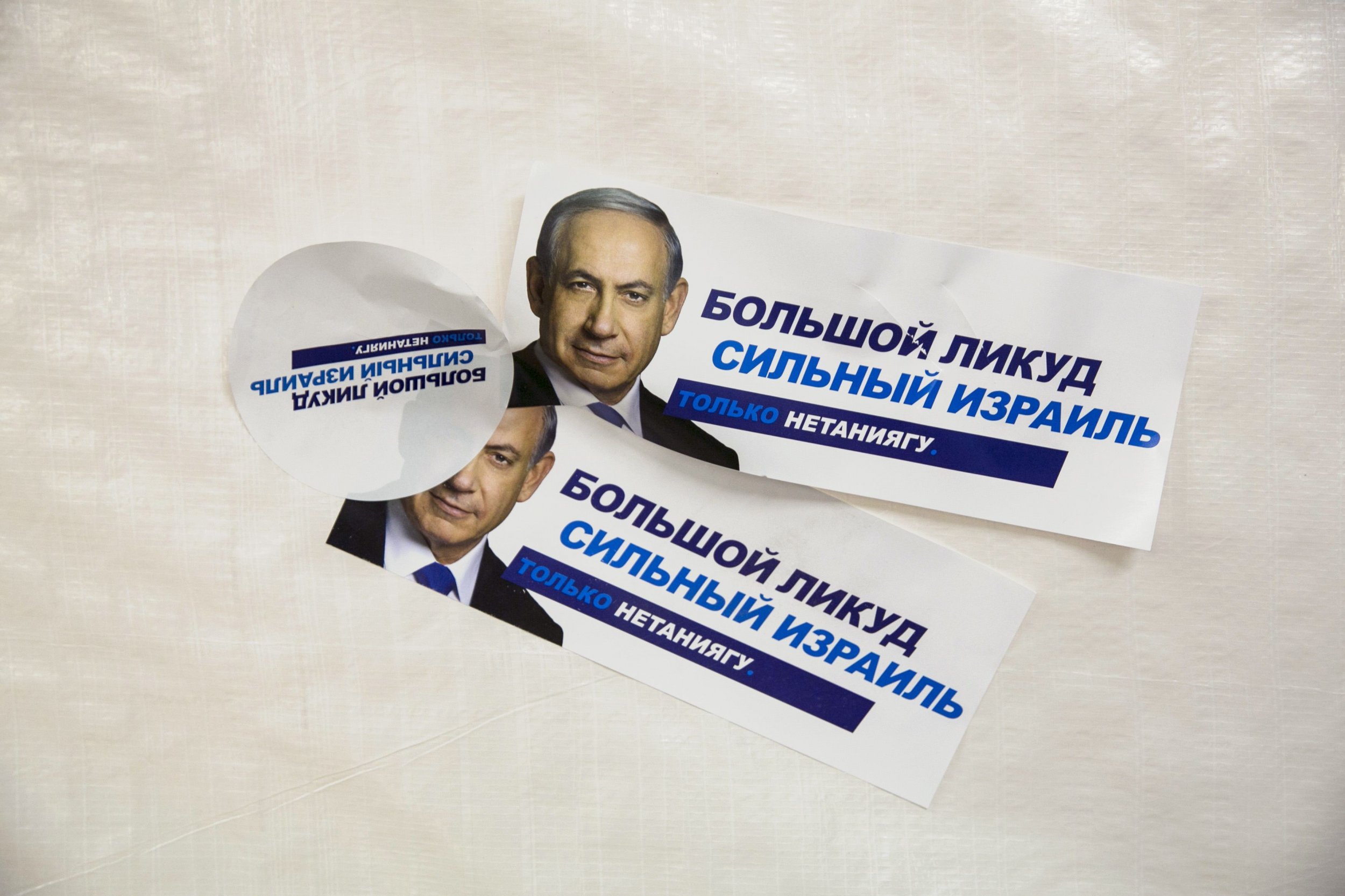
According to media reports, one of the prime architects of President Bill Clinton's political victories, Paul Begala, is arriving in Israel to consult for the campaign of the Zionist Camp party led by Yitzhak Herzog. By all accounts, they can use that help.
Not that this week has been a bad one for them. A week ago it looked like the Zionist Camp party was in a free fall and Likud, the party of Prime Minister Benjamin Netanyahu, was on the rise, with Likud taking the lead in polls for the first time in this election cycle. This week's polls show a reversal: The Zionist Camp once again seems to hold a small lead, or, at minimum, is running neck and neck with the Likud.
This change seems not so much a result of any gains made by Herzog and his team, whose campaign seems unable to take off, but a result of the continued weakness and overall unpopularity of Netanyahu. On Tuesday, it was reported that the campaign heads of the Zionist Camp's campaign have been replaced by Herzog.
In every opinion poll, the public has overwhelmingly stated that when it comes to voting on Election Day, it is more concerned with electing a candidate who will do a better job handling economic matters. While as a whole the Israeli economy is doing fine, people are finding it much harder to make ends meet.
The cost of living in Israel, specifically food and housing, is higher than in the U.S., while the mean income in Israel (based on the latest Organisation for Economic Co-operation and Development figures) is half that of the United States. So for most Israelis the economy is a dominant factor in their lives. Israel's high-tech sector has had amazing success in the past decade, but that success has not had a large effect on the rest of the economy. Thus, Netanyahu, who has been prime minister for six years, is vulnerable on economic issues.
Yet, despite what people tell pollsters, most observers believe that once Israelis go behind the voting curtain, they end up, more often than not, voting on the issue of security. Netanyahu has been very successful these past weeks in keeping the national debate focused on that issue. Whether it's been concern with Hezbollah in the north or a nuclear agreement with Iran, the national discussions have all given Netanyahu an advantage.
This week the national debate in Israel has largely continued to be about Netanyahu's upcoming speech to the U.S. Congress, which will center on Iran. The Israeli press has been closely covering the controversy surrounding the speech, including reporting every time another Democratic lawmaker announces they will not attend. Based on recent polling, 54 percent of Israelis believe Netanyahu should not speak to Congress at this time. Nonetheless, most stated that the question will not affect their vote.
Herzog has decided to make Netanyahu's speech a major campaign issue. On Tuesday, in a TV interview, he blamed Netanyahu for undermining Israel's relations with the U.S. Herzog said Netanyahu is making Israel a partisan issue in the U.S. and undermining bipartisan support for his country there.
Herzog said he is as opposed to Iran gaining nuclear weapons as Netanyahu is and considers them a major danger to Israel. However, he would first try to not create panic among the Israeli public. Second, he does not believe that those negotiating with Iran are close to reaching an agreement. As a result, instead of strengthening the opposition against Iran, Netanyahu's actions are weakening it. Netanyahu responded by saying he is not going to the U.S. to fight with President Barack Obama but to explain why the potential deal that is being discussed is a bad one.
So far, this has been a strange election campaign. It has been more than a decade since there has been a preelection debate between candidates in Israel. Herzog has repeatedly challenged Netanyahu to a match, but that challenge has been ignored.
The two major independent TV networks have been trying to arrange a debate among the leaders of the five largest parties, and they are optimistic that one may yet happen. Herzog has already announced he would debate the leaders of any party, on the condition that if Netanyahu refuses to take part, an empty chair will be placed onstage to mark the prime minister's absence.
Until now, the campaign has consisted of a series of dueling YouTube ads and parlor meetings held by candidates from all the lists. An additional battle is being fought in Israel's two largest newspapers. Israel Hayom, the largest paper, is distributed free, thanks to funding from its owner, American gambling tycoon Sheldon Adelson, and is 100 percent supportive of Netanyahu. Yediot Ahronot, owned by Arnon Mozes, has been extremely critical of Netanyahu, so much so that the prime minister published a tweet Monday charging that the paper has been behind the recent "smear attacks" that have been leveled at him.
Still, current poll numbers indicate that Netanyahu would have an easier time than Herzog in creating a coalition. Meanwhile, Herzog quietly claimed Tuesday that many more potential partners are willing to support him than he can declare publicly at this time.
Political historian Marc Schulman is the editor of historycentral.com. An archive of his recent daily reports from Tel-Aviv can be found here. He is also a columnist for the Times of Israel.
Uncommon Knowledge
Newsweek is committed to challenging conventional wisdom and finding connections in the search for common ground.
Newsweek is committed to challenging conventional wisdom and finding connections in the search for common ground.
About the writer
To read how Newsweek uses AI as a newsroom tool, Click here.





